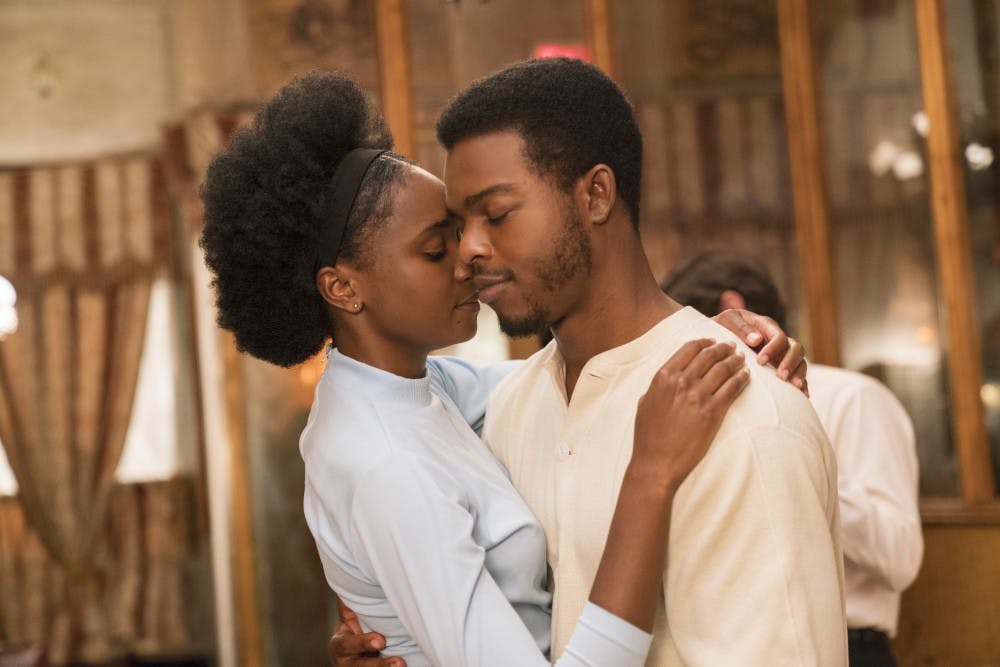Perhaps if the Oscars ever made the right choice, the world might finally know peace.
OK, maybe not, but we’d certainly be miles closer in that world than in the one where “Green Book,” the horrendous racism-confronted-through-the-perspective-of-a-white-savior movie won and the internet was instantly ablaze in hot takes and fiery take downs.
It’s no secret that the Academy can’t satisfy everyone, and as always, this year’s crop of nominees overlooked some of the year’s most important filmmaking achievements.
Perhaps the most tragic was the exclusion of Paul Schrader’s chilling crisis of faith drama “First Reformed” from the award's major categories. The film was only acknowledged with a nomination for Best Original Screenplay.
What’s so striking about this bleak, incisive interrogation of society’s failures to address the violence of climate change is how coherent and efficient it is.
No love was shown to Ethan Hawke’s outstanding performance as a lonely pastor overcome by fear of the future, Schrader’s masterful direction or even Alexander Dynan’s beautifully minimalist cinematography.
For a film that tackles a tangle of weighty issues — faith, mortality and spirituality, to pick just a few—it remains tight and focused. Schrader’s film is one of the most important of the year, regardless of the Academy’s failure to recognize it.
Another of the year’s most vital movies, Jennifer Fox’s searing sexual assault cinememoir, “The Tale,” was shut out of the awards entirely. That’s perhaps understandable, considering the film’s release constricted it to a few festivals and a release on HBO, but Fox’s work is remarkable nonetheless.
Drawing from her personal pains, Fox recounts her own experiences with sexual grooming and assault at the hands of two trusted mentors in her life. Laura Dern, who plays Fox in the movie, delivers a performance that is at once devastating, intimate and hopeful. Undoubtedly, “The Tale” is one of the bravest movies ever made.
The Academy also turned a blind eye towards genre films once again, failing to recognize the stunning craftsmanship behind movies like “Suspiria,” “Hereditary” and “Mission: Impossible - Fallout.”
There’s always an argument to be made for recognizing the undeniable crowd-pleasing appeal of a great action movie, which makes the superb latest “Mission: Impossible” movie’s exclusion all the more tragic.
But there’s also the frustration of the Academy’s consistent refusal to honor great horror movies. A24’s “Hereditary,” which received rave reviews when it released in the summer, was overlooked in all categories despite a tremendous screenplay and powerhouse performance from Toni Collette.
Equally tragic is the ignorance of the exceptional craftsmanship on the more divisive but equally magnificent horror fantasia, “Suspiria,” which feels like it should have been a shoo-in for makeup, set design, costuming and cinematography awards.
Then there’s the matter of Barry Jenkins’ latest masterpiece, “If Beale Street Could Talk.” Jenkins, who won Best Picture for his drama “Moonlight” in 2017, adapts author James Baldwin’s seminal love story to the screen with his usual grace and heartbreaking empathy, crafting a story that is beautiful beyond measure.
The story follows a pair of young lovers, Tish and Fonny, who are separated when Fonny is accused of a crime he didn’t commit. The film is breathtaking to behold.
Jenkins’ film is spellbinding at every turn, and despite the gravity of its subject matter, it remains hopeful. Like “Moonlight” before it, “If Beale Street Could Talk” demonstrates Jenkins’ aptitude for masterful and empathetic investigations of social and cultural phenomena.
The film received nominations for its score and screenplay, and Regina King took home a Best Supporting Actress award for her performance, but it still feels overlooked because of its absence in other major categories.
Evidently, despite the love that bursts from every scene of "If Beale Street Could Talk," the Academy had none for this Best Picture should-have-been.
The beauty of art is in its subjectivity, and what the Academy deems the best pictures and performances of the year are not objectively that. There’s always room to seek out great art and to be immersed in a great story, despite the Academy's opinions.




